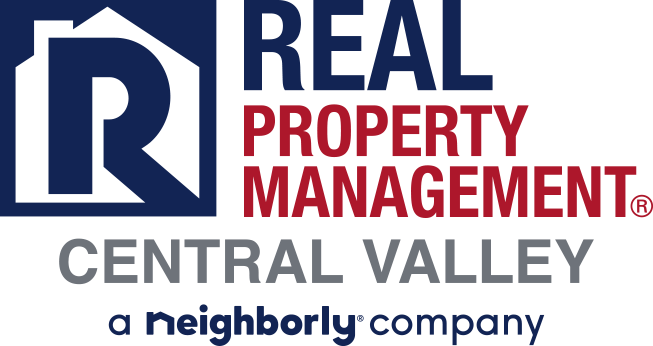Landlords guide to dealing with tenant problems

It’s no secret that being a landlord isn’t always easy. It comes with its fair share of challenges and problems. From late rent payments to property damage, there are a variety of tenant issues that landlords must deal with. But with the right tips and strategies, these problems can be managed effectively. This guide is designed to provide landlords with the knowledge and tools they need to safely and successfully navigate the world of tenant problems. From communication techniques to legal resources, you’ll learn everything you need to know about dealing with tenant issues. With this guide, you’ll be able to address tenant issues in a more efficient and professional landlord manner. So, get ready to tackle those tenant problems and make your life as a landlord easier!
Tenant Communication Strategies
Regardless of the issue you’re dealing with, open and honest communication is essential. You’ll want to start with an initial conversation and then continue to follow up as necessary. These conversations should be documented either on paper or digitally. This can help to protect both parties from any potential future issues. When dealing with communication issues, it’s important to be courteous and professional. Don’t escalate the situation by getting too emotional or aggressive. Instead, try to remain calm and reasonable. This will allow you to work through the problem more effectively and efficiently. Keep in mind that tenants may have very different priorities and time frames than landlords. This can lead to communication issues that can lead to tenant problems. For example, you may need to remind the tenant that they need to renew their lease, but they might have forgotten to do so because it’s not important to them.
Tips for Dealing with Late Rent Payments
Late rent payments can be one of the most frustrating tenant issues for landlords to deal with. You’ll want to be prepared for this situation by creating a late rent payment policy. This can help you remain consistent and fair. In addition, you’ll want to set up a reminder system for tenants who are frequently late with their rent. This can be as simple as sending them a text message or email. It’s important to note that you can’t start the eviction process until after a tenant has been late with their rent three times. This is according to the landlord-tenant laws in your state. It’s best to try to work with late-paying tenants rather than immediately evicting them. You may be able to help them get back on track by offering payment assistance or other guidance. It’s also important to remember that you cannot use a tenant’s history with one landlord as a reason to deny them housing with another. This is discrimination and violates fair housing laws.
Strategies for Handling Property Damage
If you discover that a tenant has caused damage to your property, you’ll want to follow a specific process. First, you’ll want to document the damage as thoroughly as possible. This will help you make the strongest case against the tenant in court. If the damage is significant, you may want to send the tenant a notice to vacate the property. If they don’t leave, you can then proceed with an eviction. If you’re required to send the tenant a notice, make sure to follow the correct legal procedure. For example, if the tenant is behind on their rent and you’re required to give them a notice to vacate as a result, you must follow the correct procedure: Give the tenant 3 days to pay the rent and then another 5 days to move out. If you don’t follow the correct procedures, you might lose your case in court.
Fair Housing Laws
Landlords should be aware of the laws surrounding tenant discrimination. For example, you cannot discriminate against a tenant based on their race, color, religion, sex, national origin, familial status, or disability. In addition, you can’t refuse to rent to a tenant who relies on government assistance. You cannot set different terms or conditions for one group of people compared to another group. For example, you cannot require one group to pay a security deposit but not another group. If you violate any of these laws, a tenant might file a complaint against you with the Department of Housing and Urban Development (HUD). If HUD finds out that you’ve violated their laws, they can impose penalties on you: These can include fines, termination of your rental assistance, or revocation of your HUD certification.
Resources for Landlords
If a tenant problem occurs, it’s important that you have access to the right resources and information. Make sure you have a housing law reference book handy so you can look up the correct legal procedure. It’s also important to have a tenant handbook that outlines your policies and lease terms. This can help you avoid legal issues in the future. Finally, it’s recommended that landlords join a local landlord association. This can be a great way to network with other landlords and get advice and support when dealing with tenant issues.
Preparing for Potential Tenant Issues
There are certain things you can do to prepare for tenant issues. First, thoroughly screen your tenants to make sure they are a good fit for your property. You’ll also want to have a written lease that outlines your terms and policies. Finally, have an emergency fund available in case a tenant problem arises. This can include money for repairs. It’s important to keep in mind that landlords are responsible for repairs that go beyond normal wear and tear. When a tenant issues occurs, it’s important to remain calm. Try not to immediately jump to conclusions or take action. Instead, objectively assess the situation and figure out what needs to be done. This will help you avoid making a situation worse and make it easier to resolve.
Managing Tenant Complaints
If a tenant ever complains about the quality of your service, it’s important to respond quickly and courteously. This can be as simple as sending an email or making a phone call. You’ll want to keep a record of these complaints so you can address them later. If multiple tenants are complaining about the same thing, it’s a good idea to make a change. For example, if many tenants are landlord complaining about the speed of repairs, you can hire more repair workers. Or, if many tenants are upset about their rent, you can consider lowering the rent to attract more tenants. It’s important to document any complaints you receive and respond to them promptly and appropriately. Doing so will help keep the relationship between you and your tenants strong and healthy. It will also help you avoid legal issues in the future.
Best Practices for Dealing with Tenant Problems
If a tenant problem arises, try to work with the tenant to resolve the situation. If a tenant stops paying rent, it’s important to stay calm and communicate courteously and effectively. You’ll want to start by following your state’s legal procedure for how to proceed with an eviction. You’ll also want to consider hiring a lawyer to make sure your eviction process is handled correctly. If a tenant breaches their lease in a significant way, don’t try to fix the landlord situation yourself. Instead, follow your state’s legal procedure for what to do next. And, again, it might be a good idea to hire a lawyer. In addition, it’s important to remember that every situation is different. You can’t expect every tenant issue to be resolved the same way. You must be flexible, creative, and open-minded. You must be willing to try new things and experiment. Doing so will help you find solutions to tenant issues more quickly and efficiently.
Conclusion
If you follow these tenant communication strategies, it’ll be easier to effectively address tenant issues. It’s important to remember that every tenant is different. What works with one tenant might not work with another tenant. This is why it’s important to be flexible and creative. Finally, it’s important to remember that dealing with tenant problems can be stressful and frustrating. But, it’s important to remain level-headed and professional throughout the process.
To learn more about the property management services we can offer you, contact us today by calling (209) 572-2222 or click here to connect with us online.
